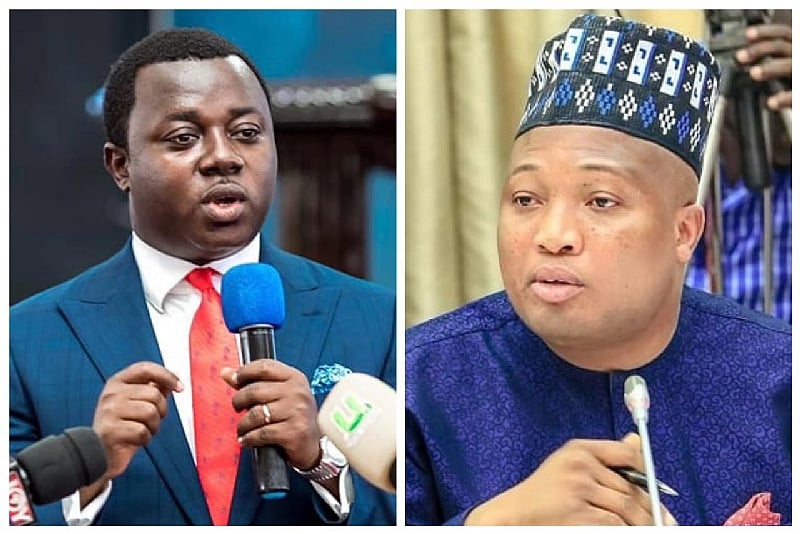The ongoing political discourse in Ghana has been punctuated by a recent clash between two prominent Members of Parliament: Reverend John Ntim Fordjour, representing Assin South, and Samuel Okudzeto Ablakwa, representing North Tongu and designated Minister for Foreign Affairs. The core of the contention revolves around accusations of hypocrisy and double standards leveled by Rev. Ntim Fordjour against Mr. Ablakwa, stemming from the latter’s appearance before the Appointments Committee. Rev. Ntim Fordjour has criticized Mr. Ablakwa for what he perceives as an overly zealous pursuit of tarnishing others’ reputations while simultaneously shielding his own from scrutiny. This perceived disparity in approach has sparked a debate about fairness, transparency, and the responsible exercise of political power.
At the heart of the controversy lies Mr. Ablakwa’s appearance before the Appointments Committee, the body tasked with vetting ministerial nominees. Rev. Ntim Fordjour highlighted what he considered a glaring inconsistency in Mr. Ablakwa’s behavior. While reportedly arriving at the vetting with copious documentation concerning the properties and dealings of other individuals, Mr. Ablakwa allegedly balked at providing nine documents requested by the committee related to his own business, rental properties, and other holdings. This refusal, according to Rev. Ntim Fordjour, exposed a double standard in Mr. Ablakwa’s approach to transparency and accountability, suggesting a willingness to scrutinize others while resisting the same level of scrutiny upon himself.
Rev. Ntim Fordjour further underscored his accusations of hypocrisy by referencing a previous incident involving Mr. Ablakwa and the Minority Leader, Alexander Afenyo-Markin. During his own vetting, Mr. Ablakwa reportedly demanded an apology from Mr. Afenyo-Markin for comments allegedly damaging to his reputation and that of his family. This demand for an apology, juxtaposed against Mr. Ablakwa’s perceived reluctance to provide personal documentation, forms the crux of Rev. Ntim Fordjour’s argument. He contends that Mr. Ablakwa’s insistence on protecting his own reputation while seemingly being less concerned about the reputations of others reveals a lack of fairness and sensitivity.
The clash between these two MPs highlights a broader issue within the political landscape: the tension between holding others accountable and maintaining one’s own integrity. Rev. Ntim Fordjour’s critique of Mr. Ablakwa essentially calls for consistency in applying standards of transparency and accountability. He argues that politicians should not demand from others what they are unwilling to provide themselves. This principle of reciprocity is fundamental to fostering trust and ensuring equitable treatment within the political sphere. The demand for consistency extends beyond the individual level to encompass the entire political process.
The public nature of this exchange raises questions about the potential impact on public perception of both individuals and the political process as a whole. Accusations of hypocrisy can erode public trust in political figures and institutions. The perceived double standard, if left unaddressed, can fuel cynicism and disengagement from the political process. Conversely, addressing such accusations head-on, through open dialogue and demonstrable commitment to transparency, can strengthen public confidence and reaffirm the integrity of political processes. This incident serves as a reminder of the importance of maintaining consistency in words and actions, especially for those holding public office.
The ongoing debate highlights the importance of accountability and transparency in political life. The expectation is that those in positions of power should not only be held to a high standard but also demonstrate a willingness to adhere to those standards themselves. The demand for nine documents related to Mr. Ablakwa’s personal affairs, juxtaposed with his alleged possession of extensive documentation concerning others, becomes a symbolic representation of this larger debate. The call for fairness and sensitivity in handling reputations underscores the need for respectful and ethical conduct within the political arena. This incident serves as a case study in the complexities of political accountability and the ongoing struggle to balance individual rights with the public’s right to know.














